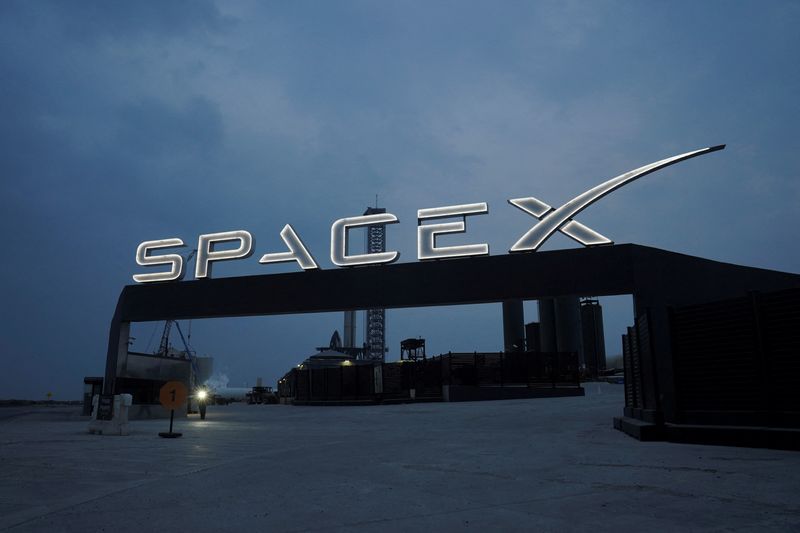By David Shepardson
WASHINGTON (Reuters) - A U.S. appeals court on Friday upheld the decision of the Federal Communications Commission to approve a SpaceX plan to deploy thousands of Starlink satellites to provide space-based broadband internet service.
The U.S. Court of Appeals for the District of Columbia rejected a legal challenge from DISH Network (NASDAQ:DISH) and an environmental group composed of amateur astronomers and dark-sky enthusiasts. DISH had argued the FCC did not adequately consider the risk of signal interference with other satellites, while the astronomer group said the FCC had not followed an environmental law in its approval. The court in 2022 rejected a separate challenge to SpaceX's plan to deploy satellites at a lower Earth orbit than planned.
In late 2022, the FCC approved SpaceX's request to deploy up to 7,500 satellites after the commission in 2018 approved SpaceX plans to deploy up to 4,425 first-generation satellites.
SpaceX has sought approval to operate a network of 29,988 satellites, to be known as its “second-generation” or Gen2 Starlink constellation to beam internet to areas with little or no internet access.
The three-judge panel said the FCC "decision to license SpaceX’s Gen2 Starlink satellites was lawful and reasonable." DISH did not immediately respond to a request for comment.

In 2022, the FCC turned down applications from billionaire Elon Musk's SpaceX and LTD Broadband for funds that had been tentatively awarded in 2020 under the commission's Rural Digital Opportunity Fund, a multibillion dollar program in which SpaceX was poised to receive $885.5 million to beam satellite internet to U.S. regions with little to no internet connections.
FCC Chair Jessica Rosenworcel defended the decision at a U.S. House hearing this week. The FCC in December said the decision was based on the Starlink failure to meet basic program requirements and that Starlink could not demonstrate it could deliver promised service.